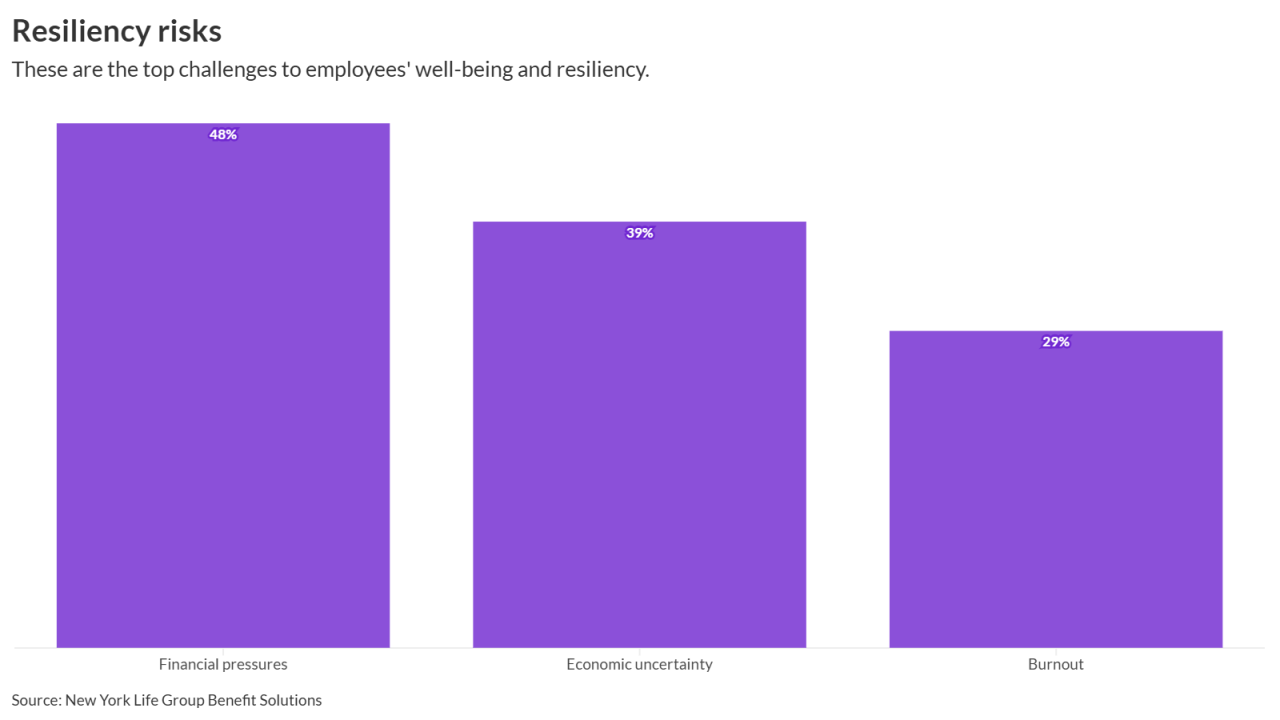Six months later, the company's moves seem less like a reversal and more like modest changes. "Belonging" has replaced most mentions of DEI — a semantic transition that began two years ago— but jobs posted on the company website still call for applicants who will support its policy of "diversity, equity & inclusion." A landing page boasts about goods from "LGBTQIA+ founded brands," accompanied by the tagline "Pride always." And Walmart offers similar pages for Hispanic-, Black- and women-owned brands, noting that some have been categorized in collaboration with external groups that offer diversity certifications.
Walmart is hardly alone. Many programs at large U.S. companies that have fallen under the diversity, equity and inclusion banner haven't disappeared, according to interviews with more than two dozen senior staffers from large U.S. companies and corporate advisors. Even businesses that have made announcements purporting to curtail their DEI initiatives have, in most cases, made mostly minor adjustments, while promising investors and employees that nothing meaningful has changed.
Read more:
A Walmart spokesman said the company is addressing outdated references in job postings. "Our goal is to foster a sense of belonging, create opportunities for all our associates, customers and suppliers, and be a Walmart for everyone. We want to make Walmart the best place to work and shop," a Walmart spokesperson said.
Executive orders targeting what President Donald Trump has
But the orders haven't fundamentally changed employment law, no matter how sweeping they may sound, said Jonathan Segal, a partner at law firm Duane Morris. And in many cases, familiar DEI efforts remain because those programs weren't discriminating against employees. "You can do almost everything you were doing before with modest changes," Segal said.
Read more:
Nor have the orders persuaded executives that all the programs that
With guidance from lawyers, many companies have focused on a handful of changes. Gone are specific targets for demographic representation across their workforces, though companies are still required to collect data on the race and gender of their employees. Some people who once had
Internship and mentorship programs developed to elevate traditionally marginalized groups mostly remain, with the new caveat that anyone can apply. Recruiting programs, especially at historically Black colleges and universities, haven't changed. Molson Coors Beverage, Ford Motor, Deloitte, McDonald's and Boeing are among those who've sought applicants in recent weeks through partnerships with the Thurgood Marshall College Fund, a non-profit group that helps some of the country's largest companies orchestrate internship and scholarship programs for students at HBCUs, primarily Black institutions and historically Black community colleges.
Read more:
Subha Barry, once the chief diversity officer at Merrill Lynch, now runs Seramount, a company that provides workplace training and inclusive leadership plans for large companies. Because she stays away from more controversial discussions about social justice, she said she's seen little impact on demand for her company's services.
"There's a return to a new sense of normalcy where companies are adapting, adjusting," she said. "Ninety percent of our companies are saying they don't see any major disruptions happening in the long term."
Meanwhile, critics like influencer Robby Starbuck and activist group Alliance Defending Freedom have pushed companies to stamp out even elements of DEI that don't violate the law, arguing that employers shouldn't be making statements or instituting policies that express "woke" beliefs, especially about gender or race.
Companies "don't want to end up on a list, don't want to be a target," said Craig Leen, a partner at law firm K&L Gates and the former director of the Office of Federal Contract Compliance Programs during Trump's first term.
Trump has ordered each federal agency to identify up to nine large companies, associations and nonprofit groups that should be investigated over DEI policies. But while the administration's signaled a new enforcement priority, the president's actions haven't meaningfully changed anti-discrimination law. "A lot of what companies are doing in the DEI area they're still able to do," Leen said, though he suggests they consider re-branding.
Read more:
Segal, the employment law specialist, also tells clients to go a step further, revisiting the underlying messaging behind their DEI plans. For example, companies that say they want a workforce that "reflects the diversity of the community" might draw scrutiny, because it could be seen as suggesting a company employ a certain number of people from each demographic group. But seeking a workforce that "reflects the talent in our community" likely mitigates the risk. Surely all companies have a responsibility to shareholders to seek out the best talent, taking care to look for people with backgrounds that might historically have been overlooked.
"It sounds a little bit like semantics, but the words matter," Segal said. He estimates that three quarters of firms he's worked with "have made changes to their communications" about diversity initiatives to ensure that they can't be interpreted as discriminatory, but by and large the underlying programs remain intact.





